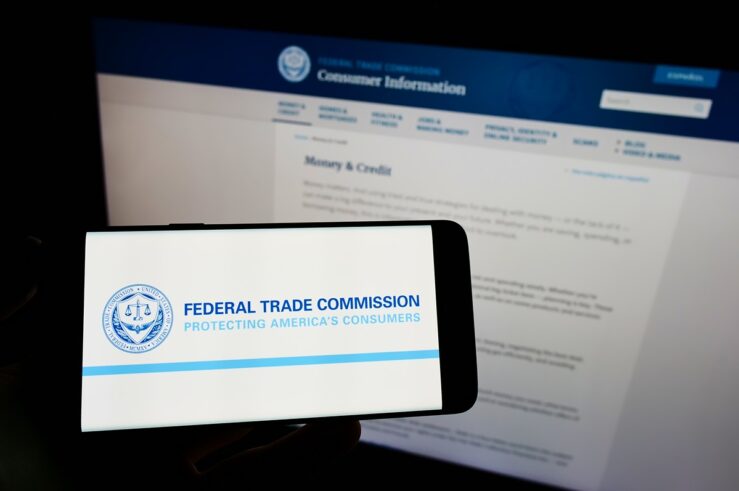The Shareholder Protection Act been reintroduced in Congress, and Lucian Bebchuk still likes it. He and Robert Jackson wrote an article defending the basic idea, which Bebchuk describes as to “establish special corporate-governance rules for deciding when corporate resources may be spent on politics.” He admits “the bill is unlikely to be adopted during this Congress.” However, since it seems no more likely to go away than Freddie Krueger or Michael Myers, it’s worth discussing why, like these characters, it’s a scary idea.
Bebchuk’s post is timely (for me) because it coincides with the publication of my article, The First Amendment and Corporate Governance. This article argues generally (per the abstract)
that regulation of the corporate governance process that produces speech faces significant obstacles under the First Amendment. These include the limited efficacy of regulation of corporate governance, regulation’s potential for protecting the expressive rights of some shareholders by suppressing others, and the uncertain implications of this rationale for types of speech other than that involved in Citizens United. These problems with the corporate governance rationale for regulating corporate speech suggest that protection of shareholders’ expressive rights may be trumped by society’s interest in hearing corporate speech and the First Amendment’s central goal of preventing government censorship.
Here’s what the paper has to say about the SPA and Bebchuk & Jackson (footnotes omitted):
This Act would, among other things, require extensive quarterly and annual disclosures of corporate speech expenditures and majority shareholder authorization of “specific” expenditures a year in advance and impose damages for unauthorized expenditures.
The SPA makes clear that its purpose goes beyond merely protecting shareholders. As the bill’s “purpose and summary” notes in its opening sentences, “The [Citizens United] ruling invalidated longstanding provisions in U.S. election laws and raised fresh concerns about corporate influence in our political process. To address those concerns, the Shareholder Protection Act gives shareholders of public companies the right to vote on the company’s annual budget for political expenditures.” In other words, the proposed Act is concerned with “corporate influence.” This illustrates the tension discussed above between the concern for shareholder expression and that for corporate distortion of the political process.
Apart from the uncertainty of the Act’s intended goal, its means of implementing this goal probably cannot survive First Amendment scrutiny under Citizens United. First, the Court suggested that, while a corporate governance regulation might pass, a remedy “based on speech, contravenes the First Amendment.” The SPA, like the restrictions at issue in Citizens United, is “based on speech.” This raises the question whether the proposed Act’s restrictions can be sustained on shareholder-protection grounds * * *.
Second, the SPA favors the expression of some stakeholders to the detriment of more passive shareholders. The provisions requiring authorization of expenditures may, depending on the applicable voting rules, empower activist shareholders, such as public pension funds, while submerging the preferences of many, perhaps a majority, of others.
Third, the Act’s requirement that corporations get advance shareholder approval for corporate political activity sharply constrains all such speech by essentially requiring firms to lock in their political activity for a year from the close of a fiscal year. This prevents firms from dealing effectively with a dynamic political landscape. Managers’ treble damage “fiduciary” liability for unauthorized speech reinforces this inflexibility. Imposing these burdens on speech would be inconsistent with Citizens United’s emphasis on the social value of corporate speech.
Bebchuk and Jackson’s governance proposals may fare better under the First Amendment because they are more squarely aimed at corporate governance and the internal distortion problem. The authors suggest requiring the shareholders approve the firm’s overall spending budget, allowing shareholders to submit binding resolutions on corporate speech for shareholder vote, requiring that independent directors make decisions on corporate speech, and mandating more disclosure concerning corporate speech decisions. These provisions are probably less onerous than those in the SPA, depending on their specific implementation, including how they interact with the rules for shareholder voting under federal and state law. Bebchuk and Jackson also would enable shareholders to opt out of the regulation, which further mitigates the impact on corporate speech.
The main problem with the Bebchuk-Jackson proposal is that it allows for possible super-majority shareholder authorization of corporate speech in order to protect the expressive rights of minority shareholders. * * * [P]rotecting the expressive rights of some shareholders may infringe the expression of other stakeholders and unacceptably restrict corporate speech under the Citizens United listeners’ rights rationale. These concerns increase with the level of protection for minority shareholders. Bebchuk and Jackson even suggest any level of shareholder approval is acceptable that enables “a practically meaningful opportunity to obtain the required approval.” The authors draw this standard from cases on whether state antitakeover law preempts federal law protecting shareholders’ rights. The preemption standard is based on the intent underlying federal takeover law and has little to do with determining corporations’ and corporate stakeholders’ rights regarding corporate speech.
The full article provides support for the positions underlying these criticisms, and cites to my earlier writing on these issues containing deeper background.




